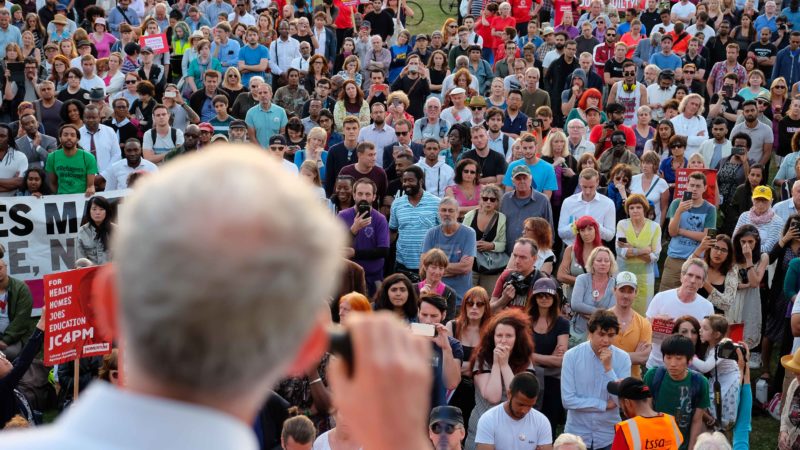
OnLondon recently carried an article about a group of members in Haringey calling for the creation of a “working-class section” in response to the gentrification of the Labour Party. It is important not to rose-tint the past, and from the beginning Labour has had a strong middle-class component, including figures such as Sidney and Beatrice Webb, Stafford Cripps and, of course, Clement Attlee.
My research into Labour’s parliamentary recruitment, however, proves that the middle-classes are far more dominant now than they were in the 1970s and ’80s. Gentrification has been steadily increasing under Tony Blair, Gordon Brown, Ed Miliband and Jeremy Corbyn alike, making it a valid and pressing point to raise. But a working-class section is not the solution.
The biggest problem is simply deciding who is working-class. Around 60% of British people define themselves as working-class when asked, even though less than a quarter now work in traditionally working-class routine or manual jobs. Nearly half of people in the B and C income groups define themselves as working-class. Most modern working-class people work in jobs like social care, call centres, dead-end white-collar admin work or the gig economy.
This presents a problem for those wanting to decide who to let into a working-class section. Self-defining, as the above numbers show, would be a mockery. Definitions based on traditional blue-collar work would also fail. Very few people in Britain are comfortable declaring their income openly, so that would also be problematic. Nevertheless, there are things that can be done to boost working-class participation in the Labour Party.
Firstly, the championing of working-class and non-graduate voices at the top of the party, of which there are very few. Research shows that when working-class kids go to university, they adopt middle-class opinions, habits and sensibilities to ‘blend-in’. So even those with a working-class upbringing will not have the same mindset as non-graduates. Angela Rayner is one of the very few now at the top of the party. Giving voices like hers prominence demonstrates that there is still a place for non-graduates in the party, as figures like Alan Johnson and John Prescott did for New Labour.
The next big thing is resources. A fund for people to attend conference and other big networking events would run into the same issue of definition, but there are other ways of making them cheaper. Uniquely amongst UK-wide parties, Labour’s conference has not been held in the Midlands since 1932. The Tories, Lib Dems, Greens and UKIP have all held their conference in Birmingham in the last decade. Being central, the Midlands is much cheaper to get to than places like Brighton for many people.
On the local level, alternating the holding of branch and constituency party meetings between a weekday evening and weekend afternoon would open the party up to shift workers, carers and single parents. A mentoring scheme similar to that of the Labour Women’s Network would be beneficial, but if formalised would again have the definition issue. Instead, MPs should be encouraged to support – and crucially hire – non-graduates in the party.
We need a comprehensive scheme of political education, so that our weird and wonderful terminology such as ‘factions’, ‘all woman shortlists’ and ‘nem. con’ can be explained to people who don’t regularly listen to BBC Radio 4. An understanding across the party that Labour was founded on the notion of self-interest and collective self-help, and that this is not a bad thing, would also be helpful. Ideological purity tests put off those who can’t afford them.
Lastly, we need to revitalise the trade union movement. As unions fell back and higher education grew, more and more people had their moment of politicisation happen not due to events in the workplace but rather due to ideology at university. We need to bring that union conveyor belt back online if we want more working-class people in the party.
Some of these are relatively simple, others are easier said than done. But with Labour now debating its role and future direction, the question of whether there is still a place for the working class is both urgent and timely. It is to be hoped that those vying to lead the party are considering it.




More from LabourList
Nudification apps facilitate digital sexual assault – and they should be banned
Diane Abbott suspended from Labour after defending racism comments
Labour campaign groups join forces to call for reinstatement of MPs